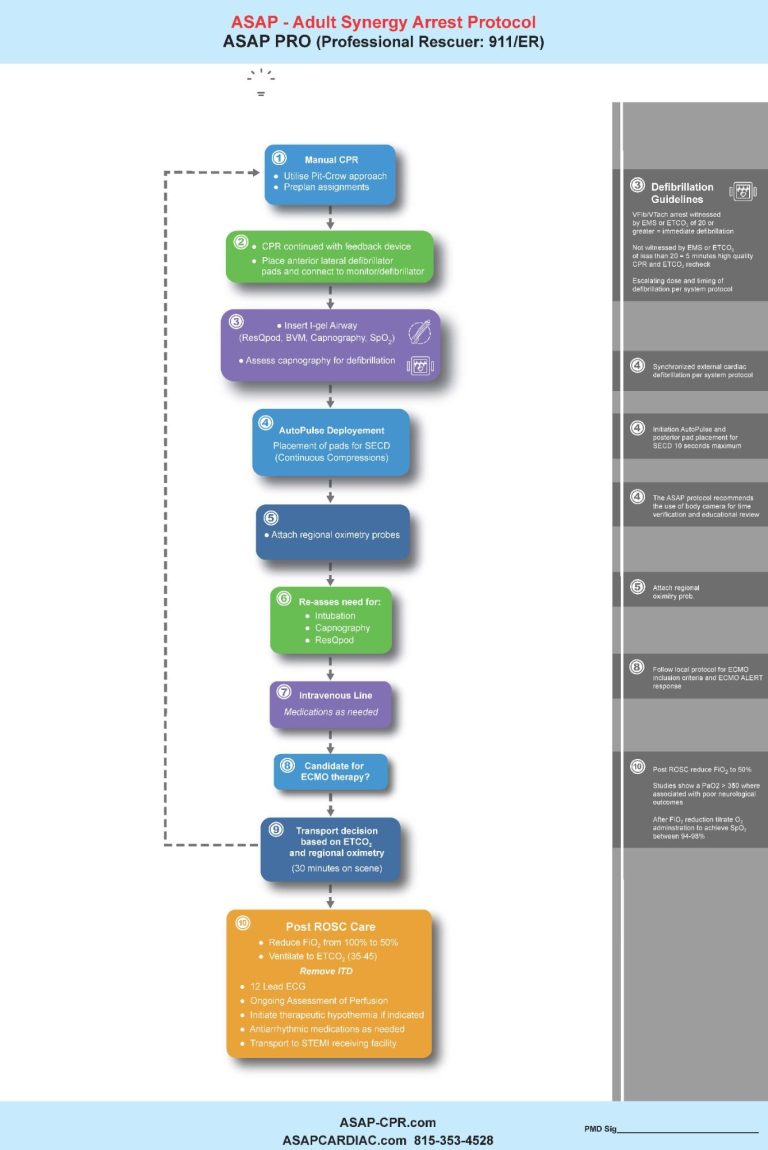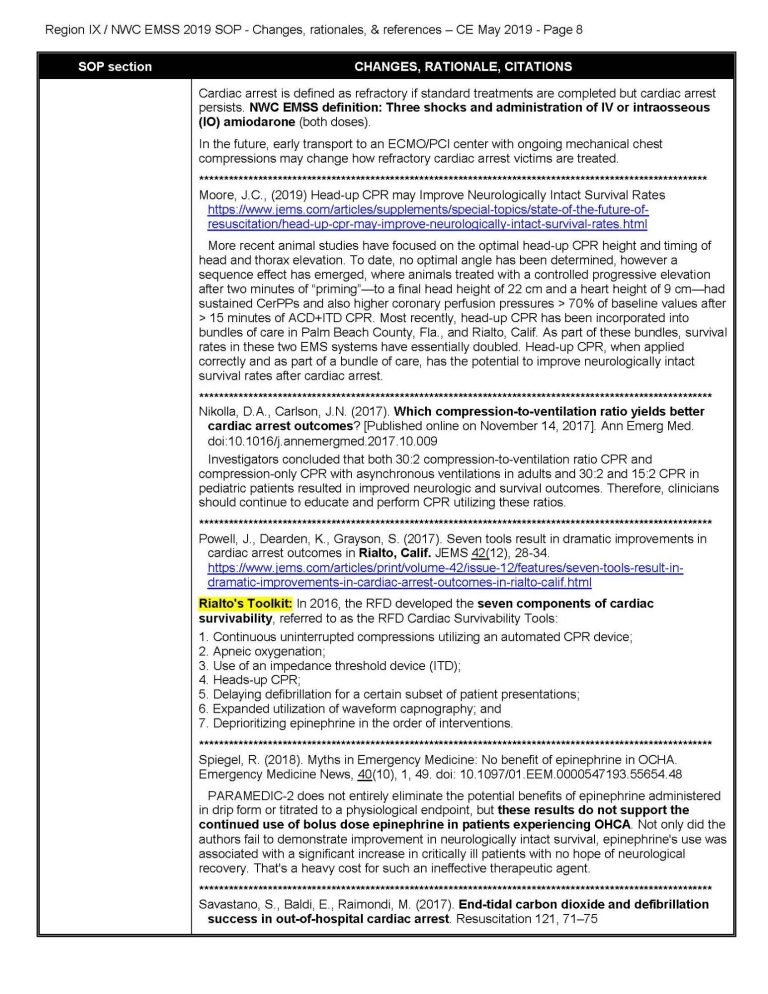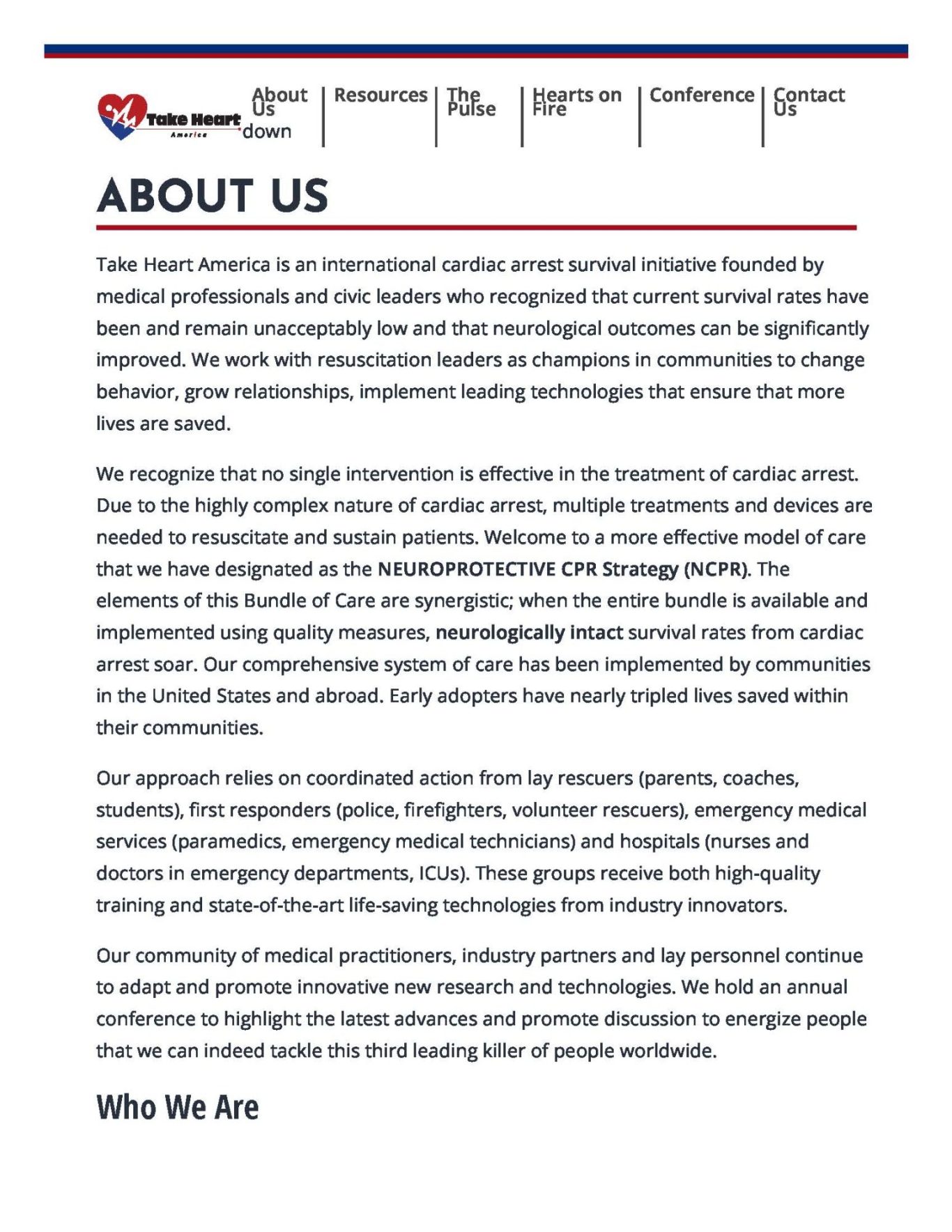Transitioning from AHA to ASAP Protocols in Emergency Cardiovascular Care with Assurance and Confidence.
The American Heart Association Acknowledges the Necessity of Customizing Resuscitation Efforts to Address Individual Patient Requirements. The following text is excerpted from page 416 of the AHA Advanced Cardiovascular Life Support for Experienced Providers manual.
Healthcare providers tailor the sequence of rescue actions based on the presumed etiology of the arrest. Moreover, ACLS providers functioning within a high-performance team can choose the optimal approach for minimizing interruptions in chest compressi (thereby improving chest compression
fraction [CCF]). Use of different protocols, such as 3 cycles of 200 continuous compressions with
passive oxygen insufflation and airw, adjuncts, compression-only CPR in the first few minutes after
arrest, and continuous chest compressions with asynchronous ventilation once every 6 seconds with the use of a bag-mask device, are a few examples of optimizing CCF and high-quality CPR. A default compression-to-ventilation ratio of 30:2 should be used by less-trained healthc. providers or if
30:2 is the established protocol.
Implement the ASAP Protocols with confidence.
There are no AHA barriers to implementing the ASAP Protocol.
Published literature indicates that the American Heart Association (AHA) advocates for the adoption of customized protocols designed to improve survival rates in the real world.
Please see the video below.

You are not alone
Many providers are already implementing components of the ASAP Protocol.
Numerous Emergency Medical Services (EMS) provider agencies are strategically incorporating elements of the ASAP Protocol. Several of these organizations have publicly articulated their rational for diverging from the American Heart Association (AHA) recommendations, opting instead for more promising intervention strategies. For the project medical director, this trend signifies that other entities are similarly embracing this evolution in OHCA management.

Medical Professionals and Community Organizations Advocate for Reform
Private physician organizations, including Take Heart America, are emerging to advocate for a heightened awareness of the urgent need for a fundamental transformation in the management of adult out-of-hospital cardiac arrest (OHCA).

AHA Acknowledges the Life-Saving Impact of Interventions Utilized in the ASAP Protocols.
a 30 second clip from the AHA ACLS Program
The ASAP Protocol curriculum serves as a substitute for specific American Heart Association (AHA) ADULT certifications, including CPR/AED for lay responders and Basic Life Support (BLS) for Healthcare Providers (HCP). Furthermore, the ASAP Pro certification is an addition to Advanced Cardiovascular Life Support (ACLS) courses or as a stand-alone course for ACLS certified providers.
We need your consent to load the translations
We use a third-party service to translate the website content that may collect data about your activity. Please review the details in the privacy policy and accept the service to view the translations.
